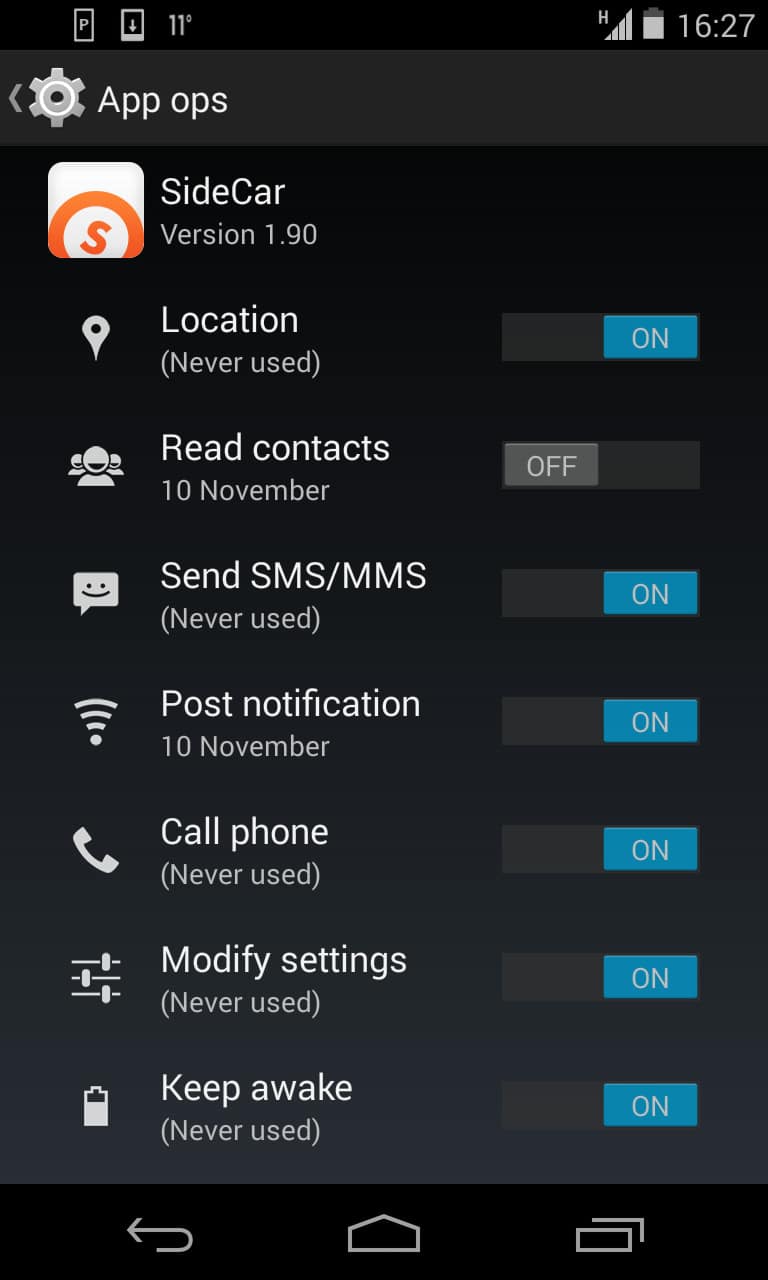Google Removes Vital Privacy Feature From Android

We have recently bought you the news on Google’s Android 4.3 Privacy Feature and how it was a must for anyone looking at blocking permissions from apps looking to gain your private information. However recently the App Ops Privacy feature has been removed by Google. When asked for a comment Google said “That the feature had only ever been released by accident and that it was experimental and could break some of the apps policed by it”. Many instances of apps “breaking’ when they are denied the ability to collect data like a location or an address book can easily be fixed via giving back a fake location or an empty address book. As with all the other updates and new features that Google ads when newer versions of their Operating System are released, developers easily could have just updated their apps to deal with this problem of apps ‘breaking” when permissions were denied.

The App Ops Interface Removed from Android OS in 4.4.2
The disappearance of App Ops is alarming news for Android users, with the feature to now turn off app permissions being removed there is a hole once again in Android’s security model and over a billion people’s personal data could be being sucked through. In more bad news this is the same problem that Apple managed to fix in their Operating System years ago. So for the mean time Android Users will have to decide how important App Privacy is to them, if for example you would like to install apps like Shazam, Skype or Brightest Flashlight without giving it permission to know your location address book etc then a good piece of advice would to not update to Operating System 4.4.2. However this also could lead to another problem, because with the 4.4.2 update it contains fixes to security and denial-of-service bugs, so for the time being Android Users will need to choose between either privacy protection or security protection on their devices but sadly not both.
Thank you Electronic Frontier Foundation for providing us with this information.
Images courtesy of Electronic Frontier Foundation








